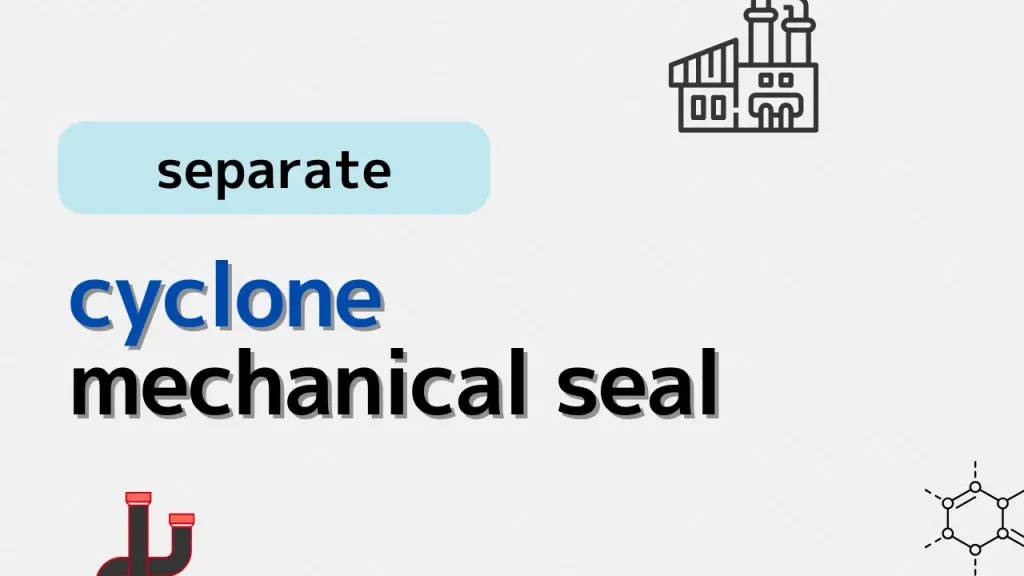Mechanical seals are critical components in pumps, especially in chemical plants. But they often face one major issue: contamination from solid particles in the liquid. One practical solution? Using cyclone separators.
This article explains how these devices work and how they help protect mechanical seals from premature failure.
Introducing articles from plantengineering.com.
The most common problem with mechanical seals is leakage.
A typical example is the destruction of the seal due to solids in the contents.
There are several ways to solve this problem. One of them is the cyclone.
The difference in specific gravity is important
There is a method to separate liquids and solids using a cyclone.
The cyclone itself is a separation method that utilizes the difference in specific gravity, and is often used in the case of gas and liquid or gas and solid.
In the case of liquid and solid, the difference in specific gravity is small, so the effect is not very high.
For example, it works when there is a clear difference between the two, such as between metal and water, but it cannot separate when the difference in specific gravity is small, such as between water and organic matter.
No energy required
Cyclones do not use separate energy for separation, so they are relatively easy to install and modify.
However, pressure loss occurs in the cyclone, so the energy required for the pump will certainly increase slightly.
If you are concerned about the high risk of seal destruction or foreign matter contamination, even if it means a slight decrease in pump capacity, consider using a cyclone.
Waste liquid treatment required
Even if you separate liquid and solids with a cyclone, you still need to process the separated solids.
This is the same for other separation methods. It needs to be stored in a tank and periodically discharged.
It is possible to make it semi-automatic or automatic instead of manual, such as by using filters, but this is costly.
LINK
Cyclone separators may seem like a small addition, but their impact on mechanical seals is huge. By keeping the sealing area free from solids, they ensure more reliable pump operation and reduce maintenance time and cost. For engineers dealing with abrasive or dirty fluids, adding a cyclone could be a smart move.
